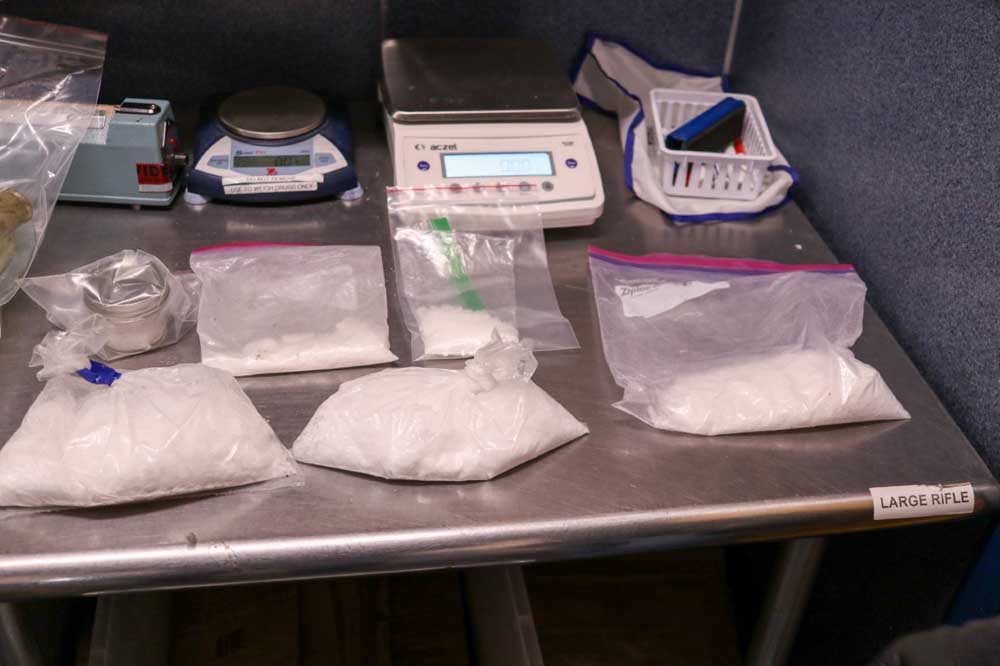Editorial: Deschutes County makes search warrants more difficult to track
Published 6:45 am Sunday, May 22, 2022

- Drugs found this month by the Deschutes County Sheriff's Office after a search warrant was issued for a vehicle and storage unit.
Government can use a search warrant to go through your home, your car, your phone. A warrant can deprive people of privacy. And if it leads to an arrest, deprive them of liberty.
Oregonians need to be able to understand how and when search warrants are used. And in Deschutes County, a change in policy makes it more difficult for the public to find out.
You could go online up until about a year ago and find many if not most county search warrants in a public database. Deschutes County judges discovered an issue in the summer of 2021. Many search warrants that had been almost automatically made public included information that should remain confidential.
It could be victim information. It could be information about juveniles, medical history or photos. It could be details of how law enforcement was using tracking devices that could tip off suspects. The list is long.
So understandably, the Deschutes County Circuit Court made a change. Search warrants are no longer easily viewable and searchable. Some cases are sealed by the court. Those cases that are not sealed can still be obtained by a public records request.
The problem is it can be difficult for a member of the public to know if a search warrant even exists to make a request for it. And so the public has less understanding about how warrants are used.
Reading a search warrant can provide insight into not only that particular law enforcement investigation but also broader law enforcement practices. Many search warrants in the county are related to DUII cases. Police officers are seeking permission to get a sample of an individual’s blood. All search warrants basically have some things in common. Police officers must swear out an affidavit explaining their training, their probable cause and describe what they are after. A judge reviews that document. The judge can approve it, amend it or reject it as inadequate in full or in part. Requests for search warrants can come in day or night. Judges are on call after hours. Some cases have one search warrant connected to them. Some have dozens.
Deschutes County Presiding Judge Wells Ashby told us particular attention these days is on search warrants that want to take a look at someone’s phone. A person’s life can be on their phone. Photos. Texts. Emails. Lists of contacts. And more. So judges are careful to ensure when law enforcement wants to look at a person’s phone for say — evidence of drug dealing — a search warrant must be tailored to match evidence of how that phone is used for the possible crime. A search warrant may be only for text messages and not other aspects of the phone’s information.
Ashby told us the Deschutes County Circuit Court has not answered all the questions it has about how it should deal with search warrants, yet. When a warrant is sealed is there a time at which it should become unsealed? What would the review process be for judges and the court administration?
Ashby did say if a public records request for a search warrant comes in, it does not matter that the court has not figured out its processes. The records request needs to be addressed.
Ashby and Angie Curtis, the county’s trial court administrator, told us the goal is to make information about the judicial system as accessible as possible but to also guarantee information that should be confidential is protected.
Deschutes County residents need to know what government is doing and why. It’s now harder to know with search warrants. There is a good reason for that. If there is an incident or a pattern of incidents that may make the public question how search warrants are used, though, it may be more difficult to discover.






